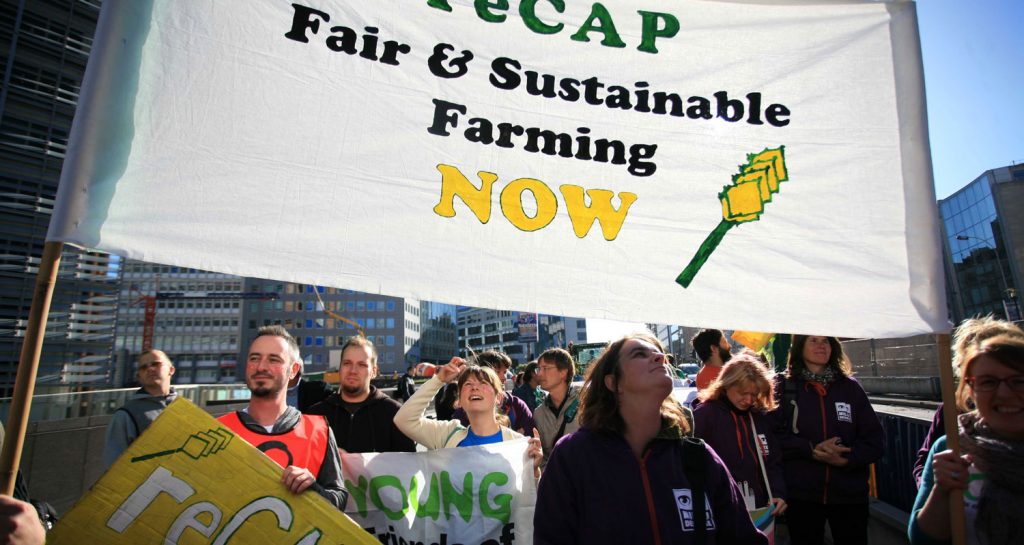Over the past fifty years, the food system has become increasingly globalised and has become heavily dependent on cheap raw materials, chemical inputs and mechanisation. The system favours large-scale intensive agriculture over small-scale farmers, international food corporations over local producers.
In short, the global food system is broken – increasingly controlled by a handful of multinationals, small-scale farmers and local companies are driven out of business, both obesity and food poverty are rife, nature is being destroyed and citizens are increasingly footing the bill for one food crisis after another.
However, an alternative food system exists and is growing. With the International Day of Peasants’ Struggles on 17 April approaching, a new briefing and video from Friends of the Earth Europe demonstrates how people across Europe are re-organising their food supply chains – re-connecting producers and consumers and re-localising agriculture and food distribution in a sustainable way. This includes short supply chains, alternative food networks, local farming systems and direct sales.
Stanka Becheva, food campaigner for Friends of the Earth Europe said: “We need a radical overhaul of the industrialised and corporate-led food and farming system if we want to feed the world without destroying the planet. This means putting food and farming back into the hands of the people.”
Friends of the Earth Europe is supporting agro-ecological food systems that work within ecological and equitable limits – to achieve food sovereignty in Europe and the rest of the world. Only in this way we will be able to build a resilient food system that will provide enough food for the future whilst supporting small and peasant farmers without destroying the environment. Friends of the Earth Europe is inviting citizens, organisations, politicians and local authorities to look for existing solutions in their regions and to find the best ways to support them.
***
NOTES:
Olivier de Schutter’s final report to the Human Rights Council: http://www.srfood.org/images/stories/pdf/officialreports/20140310_finalreport_en.pdf
In his final report to the Human Rights Council published on the 10th of March 2014, the Special Rapporteur on the right to food Olivier De Schutter concluded:
“…. food sovereignty is a condition for the full realization of the right to food….
…Empowering communities at the local level in order for them to identify the obstacles that they face and the solutions that suit them best, is a first step. This must be complemented by supportive policies at the national level that ensure the right sequencing between the various policy reforms that are needed, across all relevant sectors, including agriculture, rural development, health, education and social protection. In turn, local-level and national-level policies should benefit from an enabling international environment, in which policies that affect the ability of countries to guarantee the right to food – in the areas of trade, food aid, foreign debt alleviation and development cooperation – are realigned with the imperative of achieving food security and ensuring adequate nutrition…”







